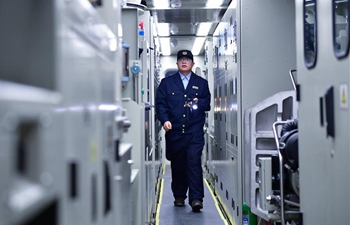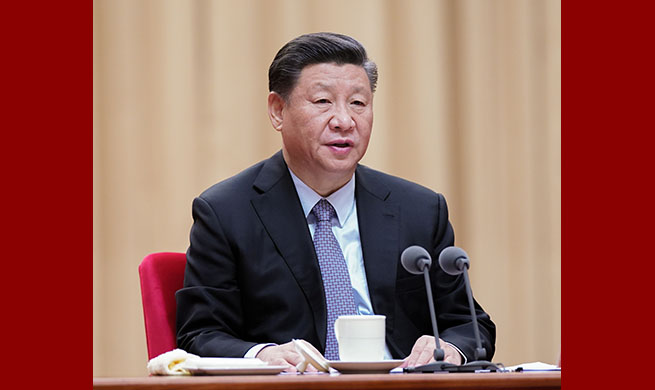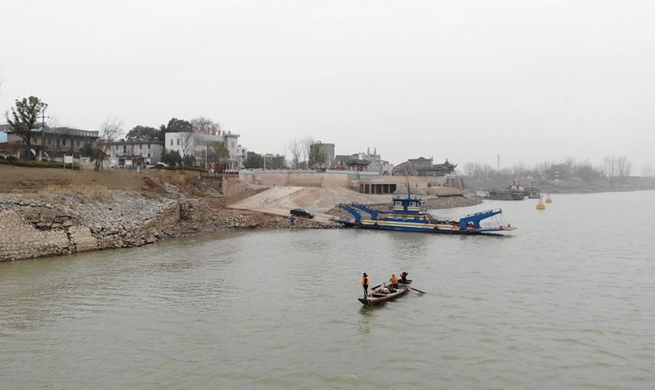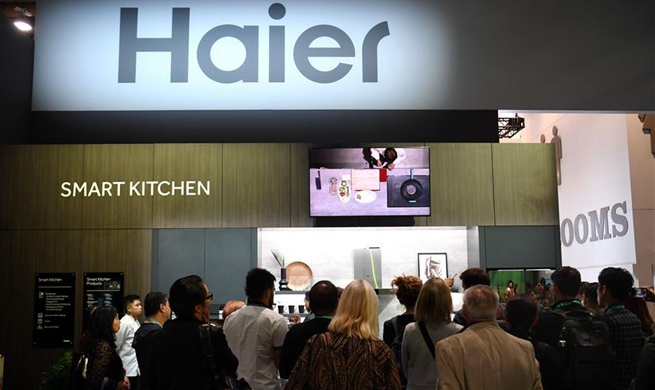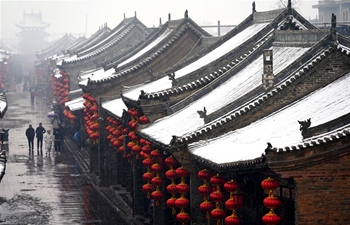by Dana Halawi
BEIRUT, Jan. 9 (Xinhua) -- While local experts agree on the urgent need to form a new cabinet in Lebanon, they voice different views on the reasons behind the delay of government formation despite promises to reach a consensus this week.
"The delay in cabinet formation reflects the confusion of Hezbollah and the uncertainty of the Shiite political party about the capacity of the coming government to deal with economic challenges and complications," said Assaad Bechara, a political analyst and writer for Al Joumhouria newspaper.
Bechara also noted that Hezbollah's agenda with regard to the new cabinet has changed following the assassination of Iranian Qassem Soleimani, head of the elite Quds Force of Islamic Revolution Guards Corps.
"Hezbollah may now have doubts about the capacity of the government headed by newly appointed Prime Minister Hassan Diab to face challenges posed by the latest developments in the region," Bechara explained.
Diab has been criticized by many experts in Lebanon for being a scholar who has little experience in politics despite being appointed as education minister in former government in the past.
Bechara also noted that one complication behind the new cabinet formation is the fact that politicians in Lebanon are still following the same old concept of arguing about shares in the government which should not be the case amid the current pressing economic and financial challenges prevailing in the country.
Bechara explained that Diab aims to prove to people that he has full authority in forming the government while President Michel Aoun and the Free Patriotic Movement headed by his son-in-law aim to control the Christian share and prove that they are the main forces behind the government formation.
Ali Mourad, a professor of Public Law at Beirut Arab University, reiterated Bechara's remarks by saying that fighting over shares in the government should be the last thing to do in such difficult times.
"Politicians are adopting the same old approaches in forming a government which should not be the case today with all the economic and financial complications that we have," Mourad said, adding that the current cabinet is supposedly being formed by a group of homogeneous political parties.
Diab was mainly voted for by the Free Patriotic Movement, Democratic Party, Hezbollah and Amal movement, Marada Movement, and the independent Sunni members of the parliament, who are considered as allies of the Future Movement, Progressive Socialist Party, Lebanese Forces and Kataeb Party, opposed the appointment of Diab.
"This reflects the extent to which Lebanon's system is complicated where even allies have different views," he said.
Mourad explained that delays in cabinet formation in other countries are usually caused by differences on the strategy that should be adopted for crises management.
"In our case, we do not even know what the new cabinet's strategy looks like to face current challenges," he said.
Upon his appointment, Diab did not share with the Lebanese any strategy to explain his approach to tackling the issues and challenges facing the country which sparked anger among civil society protests who have been in the streets for over two months asking for solutions to the country's several crises.
For his part, Salem Zahran, political analyst and director of Media Focal Center, does not consider that there has been any delay in the cabinet formation as it will take from four to six weeks to form the government since the announcement of the new prime minister.
"If Diab succeeds in forming the government within six weeks, this would be a great achievement compared to the government of former prime minister Tamam Salam which required ten months to be formed," Zahran said.
Zahran believes that government formation is expected to take place on time because Hezbollah and other political parties urged Diab to accelerate work on the cabinet ahead of any possible escalations in the region.
He added that it is totally normal to witness differences among allied political parties in Lebanon.
He also noted that only a new political settlement may cancel the formation of this government which is not the case so far.
However, Zahran expressed his fear from an escalation in the region that may involve Lebanon and destroy the chances of Diab to form a government.
Lebanon is currently in dire need for a new government following the resignation of the cabinet of former prime minister Saad Hariri due to nationwide protests aimed at changing the political system in Lebanon.
Lebanon has been going through a very tough economic and financial crisis caused by failing policies of successive governments which resulted in a public debt of over 86 billion U.S. dollars.
The new government is expected to implement structural reforms aimed at reducing the budget deficit and dealing wisely with the current crises to save the country from bankruptcy and further deterioration at all levels.







